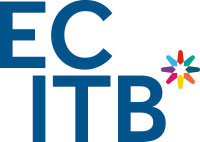Project Description
The Engineering Construction Industry Training Board (ECITB) has published its annual report and accounts for 2017.
The report sets out the achievements and financial position of the training board in 2017. It reveals that despite the challenging operating environment across parts of the engineering construction industry, significant investment was made by the ECITB in the industry skills base last year.
To read the report and accounts in full download from the link at the bottom of this page.
Lynda Armstrong, Chair of the ECITB Board, said: “I am delighted to present the ECITB’s 2017 Annual Report; my first as Chair of the ECITB Board.
“The ECITB plays a critical role in developing the highly-skilled workforce required by the engineering construction industry – a workforce that underpins the delivery, maintenance and decommissioning of some of our most important national infrastructure.
“2017 saw a period of change for the ECITB, with reforms put in place to improve efficiencies and enhance value for money to our levy payers, and a new strategy to guide the work of the training board over the next ten years.”
Chris Claydon, ECITB Chief Executive, said: “2017 has seen another strong year from the ECITB, building on the reforms initiated in 2016. The challenges faced by the engineering construction industry throughout 2017 were reflected in training levels across most sector.
Despite the poor economic conditions in the industry, the ECITB scored a number of notable successes. Our market intelligence reports on the footprint of engineering construction and the demand for engineers, were well received by the industry. The scheme to improve competence and support transferable skills training, Connected Competence, and our Project Collaboration Toolkit pilot programmes delivered encouraging results.
“There were also notable successes with the graduate retention scheme for the oil and gas sector, which enabled the industry to retain over 400 graduates during the downturn, and the collaborative venture with the Nuclear Skills Strategy Group, which has brought a more focussed and coherent approach to skills in the nuclear sector.”

